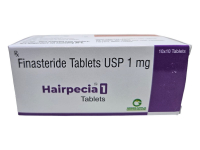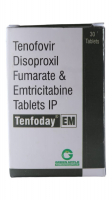


Acalabrutinib buy from India
Acalabrutinib
(a KAL a broo ti nib)
Trade Name: Calquence®
Acalabrutinib is the generic name for the trade name drug Calquence®. In some cases, health care professionals may use the trade name Calquence® when referring to the generic drug name acalabrutinib.
Drug Type: Acalabrutinib is a targeted therapy. Acalabrutinib inhibits the function of Bruton's tyrosine kinase (BTK) (for more detail, see "How Acalabrutinib Works" below).
What Acalabrutinib Is Used For
The treatment of adult patients with mantle cell lymphoma (MCL) who have received at least one prior therapy.
The treatment of adult patients with chronic lymphocytic leukemia (CLL) or small lymphocytic lymphoma (SLL).
Note: If a drug has been approved for one use, physicians may elect to use this same drug for other problems if they believe it may be helpful. Acalabrutinib buy from India
How Acalabrutinib Is Given
Acalabrutinib is a 100 mg capsule, taken by mouth twice daily.
Take acalabrutinib approximately 12 hours apart at the same time each day.
Swallow acalabrutinib capsules whole with at least 8 ounces of water. Do not crush, open, chew or dissolve capsules.
Take acalabrutinib with or without food.
If you miss a dose by more than 3 hours, omit that dose and take the next dose at the regularly scheduled time; do not take extra doses to make up for a missed dose. Acalabrutinib buy from India
The amount of acalabrutinib that you will receive depends on many factors including your general health or other health problems, other medications you may be taking, and severity or tolerance of side effects. Your doctor will determine your exact dosage and schedule.
Side Effects
Important things to remember about the side effects of acalabrutinib:
Most people will not experience all of the acalabrutinib side effects listed.
Acalabrutinib side effects are often predictable in terms of their onset, duration, and severity.
Acalabrutinib side effects are almost always reversible and should improve after treatment is stopped
Acalabrutinib side effects may be quite manageable. There are many options to minimize or prevent the side effects of acalabrutinib.
There is no relationship between the presence and/or severity of side effects and the effectiveness of the medication. Always report side effects to your healthcare provider.
The following side effects are common (occurring in greater than 30%) for patients taking acalabrutinib:
Headache
Diarrhea
These are less common side effects (occurring in 10-29%) for patients receiving acalabrutinib:
Low blood counts. Your white and red blood cells and platelets may temporarily decrease. This can put you at increased risk for infection, anemia and/or bleeding.
Fatigue
Bruising
Muscle pain
Nausea
Rash
Abdominal pain
Constipation
Vomiting
A rare, but potentially serious side effect of acalabrutinib is heart rhythm changes (arrhythmias), including atrial fibrillation and atrial flutter.
Not all side effects are listed above. Side effects that are very rare - occurring in less than about 10 percent of patients - are not listed here. However, you should always inform your health care provider if you experience any unusual symptoms. Acalabrutinib buy from India
When to Contact Your Health Care Provider
Contact your health care provider immediately, day or night, if you should experience any of the following symptoms:
Fever of 100.4º F (38º C) or higher, chills
Shortness of breath, cough or trouble breathing
Any bleeding that won't stop
The following symptoms require medical attention, but are not an emergency. Contact your health care provider within 24 hours of noticing any of the following:
Diarrhea (4-6 episodes in a 24-hour period).
Blood in your stools or black stools
Headache that lasts a long time, confusion, change in your speech
Nausea (interferes with ability to eat and unrelieved with prescribed medication)
Vomiting (vomiting more than 4-5 times in a 24-hour period).
Unable to eat or drink for 24 hours or have signs of dehydration: tiredness, thirst, dry mouth, dark and decrease amount of urine, or dizziness.
Skin or the whites of your eyes turn yellow
Urine turns dark or brown (tea color)
Decreased appetite
Severe abdominal pain
Bleeding or bruising more easily than normal
Any skin or nail changes (rash, itching, severe dryness, blister, nail infection, inflammation of the lips, etc.)
Cough with or without mucus
Mouth sores
Pain or burning with urination
Extreme fatigue (unable to carry on self-care activities)
Always inform your health care provider if you experience any unusual symptoms.
Precautions
Drug interactions may increase side effects or impact how acalabrutinib works. Before starting acalabrutinib or any new medication while undergoing treatment with acalabrutinib, tell your doctor and pharmacist about all of the medicines you take, including prescription and over-the-counter medications, vitamins, herbal supplements, and natural remedies.
Gastric acid reducing agents may decrease the amount of acalabrutinib in your blood, which may reduce the activity. Avoid concomitant use of acalabrutinib with proton pump inhibitors such as dexlansoprazole, esomeprazole, lansoprazole, omeprazole, pantoprazole, or rabeprazole. Take acalabrutinib 2 hours before taking acid reducer medications called H2-receptor blockers (e.g., famotidine or ranitidine). Separate acalabrutinib from antacids (e.g., calcium carbonate) by at least 2 hours.
Do not drink grapefruit juice, eat grapefruit or eat Seville oranges (often used in marmalades) while you are taking acalabrutinib. These products may increase the amount of acalabrutinib in your blood.
Acalabrutinib may further increase the risk of bleeding in patients taking blood thinner medicines.
Tell your doctor about any planned surgeries or dental procedures while you are taking acalabrutinib. You may need to hold your medication for a short period surrounding the scheduled procedure depending on the bleeding risk.
Do not receive any kind of immunization or vaccination without your doctor's approval while taking acalabrutinib.
Serious infections can happen during treatment with acalabrutinib. Before taking acalabrutinib, tell your doctor if you have or had a hepatitis B virus (HBV) infection.
Acalabrutinib can make your skin more sensitive to sunlight and may raise the chance of new cancer such as skin cancer. Limit your time in the sun. Remember to use sunscreen and wear a hat and clothes that cover as much of your skin as possible while taking acalabrutinib.
Inform your health care professional if you are pregnant or plan to become pregnant prior to starting this treatment. Acalabrutinib may cause fetal harm when administered to a pregnant woman.
For both men and women: barrier methods of contraception, such as condoms, are recommended during therapy and for at least 1 month after treatment is complete. Discuss with your doctor when you may safely become pregnant or conceive a child after therapy.
Do not breast feed while taking acalabrutinib and for 2 weeks after your last dose.
Self-Care Tips
Drink at least two to three quarts of fluid every 24 hours, unless you are instructed otherwise.
Wash your hands often and after taking each dose of acalabrutinib.
You may be at risk of infection so try to avoid crowds or people with colds, and report fever or any other signs of infection immediately to your health care provider.
To help prevent/treat mouth sores while taking acalabrutinib, use a soft toothbrush, and rinse three times a day with 1 teaspoon of baking soda mixed with 8 ounces of water.
Use an electric razor and a soft toothbrush to minimize risk of bleeding.
Avoid contact sports or activities that could cause injury.
If you have nausea, ask your doctor about prescription anti-nausea medications that can help. Eating small, frequent meals may also help to minimize nausea.
Eat foods that may help reduce diarrhea. See managing side effects - diarrhea.
If you have diarrhea, your doctor can prescribe and/or recommend over-the-counter anti-diarrhea medications such as loperamide.
Avoid sun exposure. Wear SPF 30 (or higher) sun block and protective clothing.
In general, drinking alcoholic beverages should be kept to a minimum or avoided completely while you are taking acalabrutinib. You should discuss this with your doctor.
Get plenty of rest.
Maintain good nutrition while being treated with acalabrutinib.
If you experience symptoms or side effects while being treated with acalabrutinib, be sure to discuss them with your health care team. They can prescribe medications and/or offer other suggestions that are effective in managing such problems.
Monitoring and Testing While Taking Acalabrutinib
You will be checked regularly by your doctor while you are taking acalabrutinib to monitor side effects and check your response to therapy. Periodic blood work will be obtained to monitor your complete blood count (CBC) and organ function (such as your kidneys and liver).
How Acalabrutinib Works
Acalabrutinib is a "targeted therapy." Targeted therapy is the result of years of research dedicated to understanding the difference between cancer cells and normal cells. To date, cancer treatment has focused primarily on killing rapidly dividing cells because on feature of cancer cells is that they divide rapidly. Unfortunately, some of our normal cells divide rapidly too, causing multiple side effects.
Targeted therapy is about identifying other features of cancer cells. Scientists look for specific differences in the cancer cells and the normal cells. This information is used to create a targeted therapy to attack the cancer cells without damaging the normal cells, thus leading to fewer side effects. Each type of targeted therapy works a little bit differently but all interfere with the ability of the cancer cell to grow, divide, repair and/or communicate with other cells.
There are different types of targeted therapies, defined in three broad categories. Some targeted therapies focus on the internal components and function of the cancer cell. The targeted therapies use small molecules that can get into the cell and disrupt the function of the cells, causing them to die. There are several types of targeted therapy that focus on the inner parts of the cells. Other targeted therapies target receptors that are on the outside of the cell. Therapies that target receptors in this way are also known as monoclonal antibodies. Angiogenesis inhibitors target the blood vessels that supply oxygen to the cells, ultimately causing the cells to starve.
Acalabrutinib is a small-molecule inhibitor of Bruton's tyrosine kinase (BTK). BTK is a protein inside of the cell that may be overexpressed in malignant B cells. It is involved in the signaling pathway from the B-cell receptor. BTK inhibition caused by taking acalabrutinib results in decreased malignant B-cell growth and survival.
Note: We strongly encourage you to talk with your health care professional about your specific medical condition and treatments. The information contained in this website is meant to be helpful and educational, but is not a substitute for medical advice.













